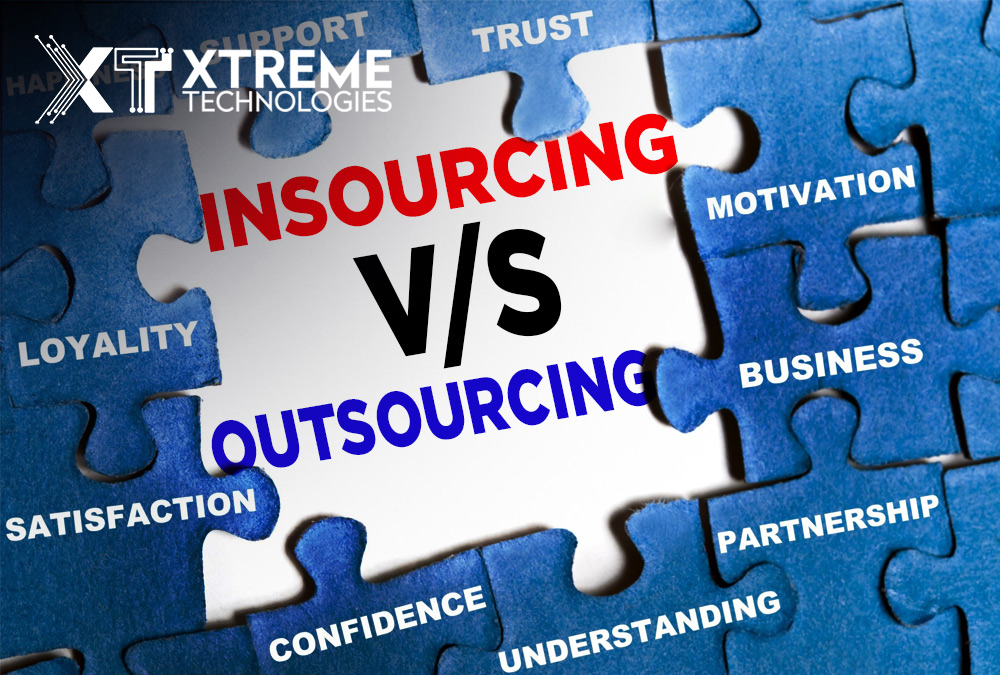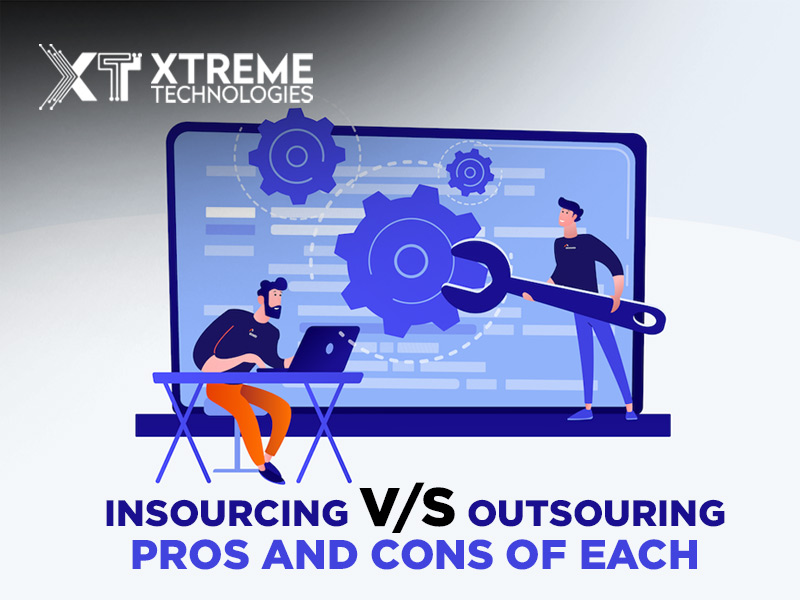
What Should You Choose for Your Organization? Outsourcing vs. Insourcing
All, BPO, Business,
Published on: September 14, 2022
Nowadays, business operations are constantly increasing in global markets. Manufacturing firms often have to weigh their options. So you are left wondering where and how to get products and good content. So you have several ways to organize your business process. Whether your company has shipping costs or worker overhead, logistics, quality control or outsourcing, or insurance, all production does what you need. Outsourcing or insourcing are two such sourcing methods, which have their advantages and disadvantages. But you might be wondering which outsourcing might be best for your business. It would be best if you thought a lot while choosing them. You should be aware of some pros and cons of outsourcing versus insurance in production.
What Is Insourcing?
Insourcing is when a company recruits outside professionals to assist with some aspect of its work. The recruited professionals can offer new knowledge or skills to employees to improve productivity, strategy, and operations. Insourcing can refer to appointing individual professionals or teams from a third-party business or other areas within the company.
What is Outsourcing?
Outsourcing is the transfer of tasks, operations, jobs, or processes to an external workforce by contracting with a third party for a significant period. Business people often do this to reduce costs or improve efficiency. This sourcing method is also known as Business Process Outsourcing (BPO). It gives you access to an external organization specializing in a particular service. These outsourcing providers help you handle essential projects for your company.
Companies usually outsource their non-core activities to outsourcing providers. The company's non-core activities include various marketing strategies, such as inbound marketing, social media marketing, digital marketing, content marketing, etc. It can also include other activities such as outsourcing software development, logistics, manufacturing, and supply chain management.
There are Three Types of Outsourcing
-
Onshoring
Outsourcing to a company or firm in your own country.
-
Offshoring
Outsourcing to a company or firm in a distant country, usually in a different time zone.
-
Nearshoring
Outsourcing to a company or individual in countries near you.
Read Also: 8 Best Advantages of Outsourcing Medical Transcription Services
Pros and Cons of Insourcing vs. Outsourcing
Both insurance and outsourcing help significantly in time management, resource management, work delegation, and cost savings. Let us examine what these are the Pros and Cons of business practices.

Here we will inform you about the pros and cons of these sources.
Insourcing Pros
1) Better Quality Control of Your Projects
In addition to ensuring your workforce, you must establish better communication with key project members. Since there is no third party in the equation, you will also gain important insights into your team's decision-making process. You will also be able to check your project as it progresses. Ultimately, you'll have complete control over your project's progress, and you'll be able to manage the quality of your finished product.
2) Smooth Business Communication
When a company insures its team for a project, there is less chance of miscommunication. Your team is working from the exact location you are, making face-to-face communication a daily possibility. In addition to verbal communication, you can use non-verbal cues such as gestures and facial expressions to ensure your team communicates seamlessly. But this is equally true if the insourced team works remotely. A full-time commitment to your company ensures that your enrolled employees are available during all work hours.
3) Protection of Intellectual Property Work
Leaks in your documents can jeopardize your investment, research, and even your team. But when you work with an insourced team, there's no risk of leaks to a third-party vendor, making it easier to manage your intellectual property work.
Insourcing Cons
1) Increased Costs
Choosing to outsource your workforce will increase your hiring and labor costs.
You will have to spend additional capital from the company
- Screening and hiring of each new employee.
- Give them monthly salaries.
- Payment of benefits such as paid leaves, sick leaves, new work equipment, etc.
2) Lack of Flexibility in Work
Taking on a new project requires your organization to be more flexible, as it will take on additional responsibilities. Your company's current team is already working on long projects, so they will quickly lack the flexibility to take on more work. As a result, your in-house team can feel overwhelmed and unmotivated.
3) Waste Your Time
Insourcing the workforce usually takes a lot of your time. You must find the best candidate for a particular job opening and train the new employee. To help them understand the scope of your business functions. Additionally, implementing a new process for operations or establishing divisions for new projects can be too much of a challenge for your existing team. Your team's attention will be divided between different departments, significantly affecting productivity.
Here we will inform you about the pros and cons of outsourcing.
Outsourcing Pros
1) Lower Labor Costs and Best Scalability
Outsourcing can significantly help control your labor costs. With this, you can save on training costs and the cost of screening and onboarding any employee. Moreover, outsourcing allows you to scale much more quickly than insourcing due to the number of resources and people available to you.
2) Focus on Main Business Activities
Outsourcing non-core business activities are one of the business strategies. Outsourcing allows your team to focus on competencies and core functions of your business. The Agencies may best take care of your core and non-core business activities. Several agencies also provide Accounting and Bookkeeping Services for Small Business to improve and streamline your workflows. That help develops and maintains your company's overall financial processes and management.
3) Access to a Best Talent
Your internal team may have skill sets in different areas of the business. However, the employees of an outsourcing company are specialized in specific tasks. Hiring someone with this level of expertise is both time-consuming and expensive. But outsourcing saves you time, and you make things easier for yourself by working with these experts.
Outsourcing Cons
1) Quality Control Problems
Outsourcing quality control to an outsourcing team can be challenging for you. So you choose a reliable partner who can execute your project confidently and successfully. It should not be a problem for you.
2) Communication Hindrance
Outsourcing that you may not be able to communicate directly with all team members working on your project, or your outsourced team may be working remotely. Communication barriers can make it difficult for you to intervene to help them reach a common understanding. Additionally, if you outsource work to distant countries, the difference in their time zones and cultures can be pretty challenging. These are the obstacles that your outsourced team may face when providing customer support to your local audience.
3) Security Concerns
Some of the biggest companies in the world are suffering data breaches. Trusting customer data and intellectual property to a third-party service provider are understandably concerning. Your service provider can take security measures to safeguard your data by signing a contract.
Final Thoughts
Typically, a company's approach to making the right decision about insurance versus outsourcing involves cost analysis. But not all business owners have the time and resources to look into all the financial concerns. So outsource your company's operations to a good and efficient outsourcing team always ready to help you and get the job done best while saving your time. Because when you manage your core business goals, it takes exceptional care of your team and development process.






Recent Comments